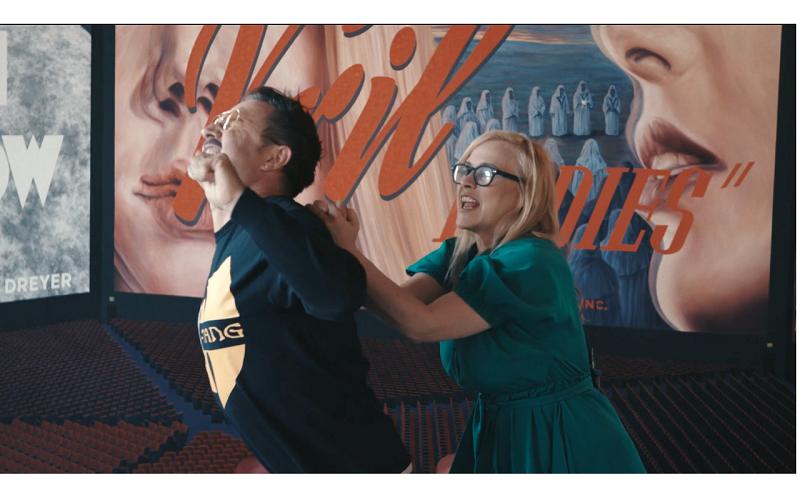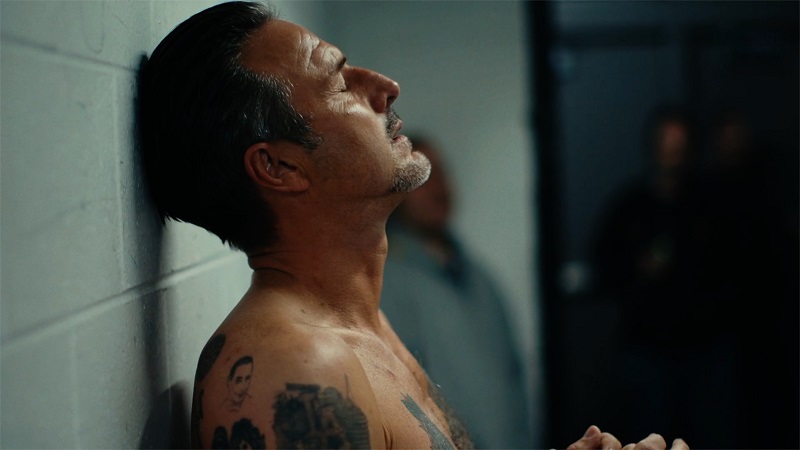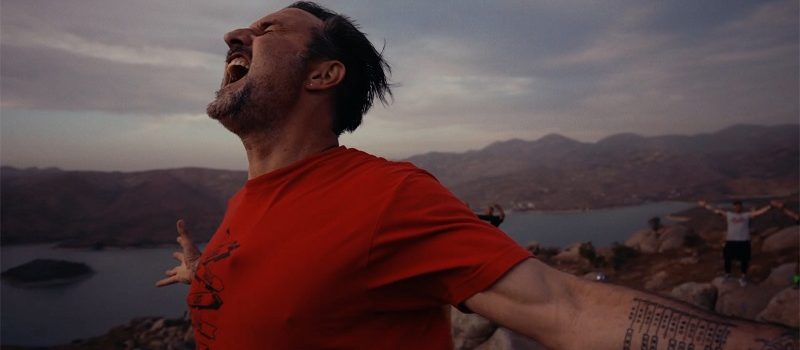David Arquette was on the cusp of some major career mojo when he got in the wrestling ring as part of the publicity tour for Ready to Rumble. It seemed like a great idea at the time, after all, Arquette was an enormous wrestling fan and had been obsessed with the sport since he used to watch it with his late father—who died when the actor was twenty-nine. Then, fate threw him a curveball and even though his better instincts told him otherwise, he went with it.

What was it? A story twist in the ring found the star “winning” the WCW World Heavyweight Championship Title. For two weeks, he carried that belt proudly, dumbfounded at his good fortune that he had no idea would essentially be like putting a knife to the throat of two things—his love of wrestling and his utter adoration of acting. Wrestling fans hated him. Hollywood thought he was a joke and the man who a year prior, in 1999, graced the cover of Vanity Fair for their Hollywood issue, a coveted spot that found him standing beside Will Smith, Matthew McConaughey, and none other than Leonardo DiCaprio.
From the outside, the new documentary You Cannot Kill David Arquette might seem like a continuation of that hilarity that has plagued and embodied his acting career for the last two decades. It’s not. The film is surprisingly inspiring. It’s also enormously heartfelt and oftentimes, don’t be surprised if the emotive meter finds itself landing on sad. For anyone aspiring to be continually moving forward in this endeavor called life, there’s nothing more tragic than being consumed by regret. That is where the doc finds Arquette when filmmakers David Darg and Price James commence their film and its endearing look at a doubled barreled dream, the entity that is Hollywood, the passionate legion of lovable loons that follows professional wrestling, and how family can build us up, but it doesn’t have to define us.
Arquette’s courageous journey is chronicled in this doc, but what one comes away with more than anything is that unbridled passion for something that we all share—regardless of what that “something” is—and going for it are two vastly different things. The actor/wrestler had no idea what he was getting into back in 2000 when he stepped in the ring. He hadn’t trained. His flamboyant showmanship, after securing the belt, during those two weeks, that alienated the fanbase of an entity that could easily vie for the “most devoted fans” title in sports and entertainment. This man who had spent his life as one of those very folks had become the embodiment of what is wrong with the institution of celebrity and in one fell swoop, he had taken a folding chair to the head of his career.
It is fascinating to hear from his siblings as well as David as they create quite a story that illuminates their collective past. Papa Arquette and an uncle in the family had careers as actors, mostly as ensemble members. At one point, his father and mother abruptly left and moved to the southeast to become part of a commune. His brother and sisters talk openly and matter-of-factly about the abuse they suffered, including some physical from their mother and verbal from father. There’s a stunning passage in You Can’t Kill David Arquette where he is sitting in an oversized chair by his home’s pool and he’s waxing poetic about childhood. Towards the end of the scene, he says something to the effect of growing up sucks. He clearly had an overwhelming sentiment centering on how childhood was awesome, the world was full of possibilities, and how he still largely considered himself a child. So much of who we are and what we do can be defined and explored by a straight line firmly into our youth. That happy kid with a million-dollar smile loved recognition and appreciation from his parents and yet, it not only wasn’t enough, but it was toxic.
The 3000 Miles to Graceland (haven’t seen it? Seek it out, it’s a blast!) star embarks on a road to some sort of career correction, whether it comes from Hollywood or the international landscape of wrestling. His hope is to redeem himself in the eyes of wrestling fans and film it, and perhaps one of the results to the finished product that Hollywood would take him seriously once again, showing the lengths he will go to get something right. To achieve perfection where previously was only a half-assed effort. It’s a fascinating premise. If you think you know where this story will weave itself, you had no idea.
Arquette starts by visiting with his doctor. We learn he suffered a heart attack a few years ago and is also the proud owner of a few stents. He also is on blood thinners. So, given his age (mid-to-late 40s), the fact that he’s he has previous heart issues, the actor understands but is distraught that there already is a roadblock.

It’s no Rocky training montage, but what the star does—workout wise—is hugely impressive. It is not overnight and takes time. He travels to Cancun to train with Diamond Dallas Page, this after getting destroyed in a backyard wrestling event in rural Virginia where two things became crystal clear. Wresting fans still despise him and want him to pay—physically, and two, he has to earn his place in the ring by putting in the work and everything that entails. Arquette even heads to Tijuana to train and to battle the iconic luchadores, even on the streets of the Mexican city.
There is the horrible response fans give him at the Legends of Wrestling in 2018 and the scuffle he got in with The Nasty Boys. Just as it seems to be going from bad to worse, something clicks, and it provides us a visceral background for this hill Arquette needs to climb, and best of all—we get a front-row seat to his positive forward trajectory.
You Cannot Kill David Arquette gives its viewers full access to the entire effort, complete with in-depth and touching informative interviews with the man himself throughout the process, but also his wife Christina McLarty Arquette, his sisters Patricia, Rosanna, and brothers Richmond and Charlie, as well as his ex-wife Courteney Cox and his daughter Coco Arquette. There is lots to get emotional over, but none more than the tribute to Luke Perry—David and the late 90210 and Riverdale star were good friends. There’s even a truly touching appearance of Luke’s son—who also shares his passion for wrestling.
Filmmakers use of songs show a deep awareness for the track, and how its place in the film was made more impactful by the lyrics. For example, who doesn’t get teary-eyed hearing Coming Around Again by Carly Simon (used in the movie Heartburn)? It’s a heartbreaking song used in the most powerful point in Arquette’s doc.

It’s easy to see the man as seeming desperate. But that is not even remotely a theme to this film. He is never in such a manner. In fact, this is about a proactive approach to reviving a career on two fronts as one can achieve. You Cannot Kill David Arquette’s moniker even comes into play because believe it or not, there is a moment where death is truly on the table. Intrigued? You should be.
Grade: A

